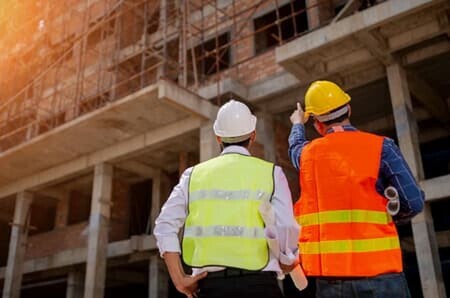What Makes a Great Health and Safety Consultant?
In today's complex workplace environment, the role of health and safety consultants is more critical than ever. These professionals serve as the bridge between compliance with regulatory requirements and fostering a culture of safety.
What sets exceptional consultants apart are specific traits that enhance their ability to deliver effective and practical solutions. Below, we explore 10 essential traits that define top-notch health and safety consultants.
Understanding the Role of Health and Safety Consultants
Health and safety consultants provide expert guidance to help organisations meet legal obligations and implement best practices in workplace safety. They work across industries, adapting to sector-specific risks, conducting risk assessments, drafting safety policies, and delivering training.
Beyond these technical responsibilities, consultants play a pivotal role in shaping organisational safety culture. By encouraging open communication and proactive safety ownership, consultants foster environments where safety is a shared priority.
Meet Our Professional Safety Consultant Team
Meet Our Team1. Effective Communication
Communication is at the heart of successful consultation. Exceptional consultants:
Simplify complex regulations into actionable steps.
Adjust their communication style for different audiences, ensuring clarity and engagement.
Use tools like infographics and visual aids to make data accessible.
Strong communication fosters collaboration, builds trust, and ensures that safety measures are understood and embraced at every level.
2. Analytical Thinking
Health and safety require precise analysis of risks, policies, and outcomes. Top consultants:
Assess workplace hazards methodically.
Develop tailored solutions based on robust data analysis.
Anticipate challenges using critical thinking.
This trait ensures organisations implement proactive safety measures with the purpose of reducing health and safety risk.
3. Qualifications and Certifications
Formal qualifications and certifications validate a consultant’s expertise. Common credentials include:
Graduate Diploma's and Degrees in occupational health and safety or related fields.
Professional certifications like NEBOSH, IOSH, or HASANZ registration in New Zealand.
These qualifications demonstrate a commitment to excellence, while ongoing professional development ensures consultants stay ahead of evolving safety standards.
4. Empathy
Empathy enables consultants to:
Understand the unique challenges faced by organisations and employees.
Tailor recommendations that align with organisational values.
Foster positive environments where safety is prioritised.
An empathetic approach improves client engagement and empowers teams to take ownership of safety practices.
5. Problem-Solving
Effective consultants are skilled problem-solvers who can:
Identify root causes of safety risks.
Develop and implement practical, context-specific solutions.
Guide organisations through complex safety challenges with confidence.
Strong problem-solving frameworks lead to significant reductions in workplace incidents.
6. Industry Knowledge
Top consultants possess in-depth knowledge of the industries they serve. This allows them to:
Identify unique risks and opportunities for safety improvement.
Develop strategies that are both compliant and practical for the workplace.
7. Attention to Detail
Comprehensive risk assessments require a meticulous eye for detail. Consultants who excel in this area:
Identify hidden hazards that might otherwise be overlooked.
Ensure recommendations are thorough and actionable.
Enhance workplace safety outcomes by addressing even minor risks.
8. Leadership
Leadership is vital in guiding organisations toward safety excellence. Great consultants:
Inspire teams to prioritise safety at all levels.
Encourage buy-in from employees and management alike.
Drive cultural shifts that embed safety into daily operations.
9. Staying Updated
Workplace safety regulations and technologies are constantly evolving. Consultants must:
Stay informed through continuous professional development.
Attend workshops, pursue advanced certifications, and network with industry peers.
Proactively advise clients on emerging risks and solutions.
10. Authenticity
Authenticity fosters trust and credibility. Authentic consultants:
Communicate transparently about safety risks and necessary actions.
Build strong client relationships by demonstrating integrity.
Equip organisations with honest insights for informed decision-making.
How Advanced Safety Can Help
At Advanced Safety, we embody these traits to deliver exceptional health and safety consultancy services. Our team:
Provides tailored solutions aligned with your industry’s unique risks.
Ensures compliance with the Health and Safety at Work Act 2015 and other regulations.
Helps foster a culture of safety through training, assessments, and ongoing support.
Whether it’s conducting a Compliance Compass assessment or offering bespoke training, we’re committed to enhancing workplace safety for our clients.
Conclusion: Partnering for Success
Hiring a top-notch health and safety consultant is a critical step toward ensuring compliance, reducing risks, and building a culture of safety. By prioritising the traits outlined above, organisations can achieve safer, more productive workplaces.
Contact Advanced Safety today to discover how we can support your business with expert advice and practical solutions.

